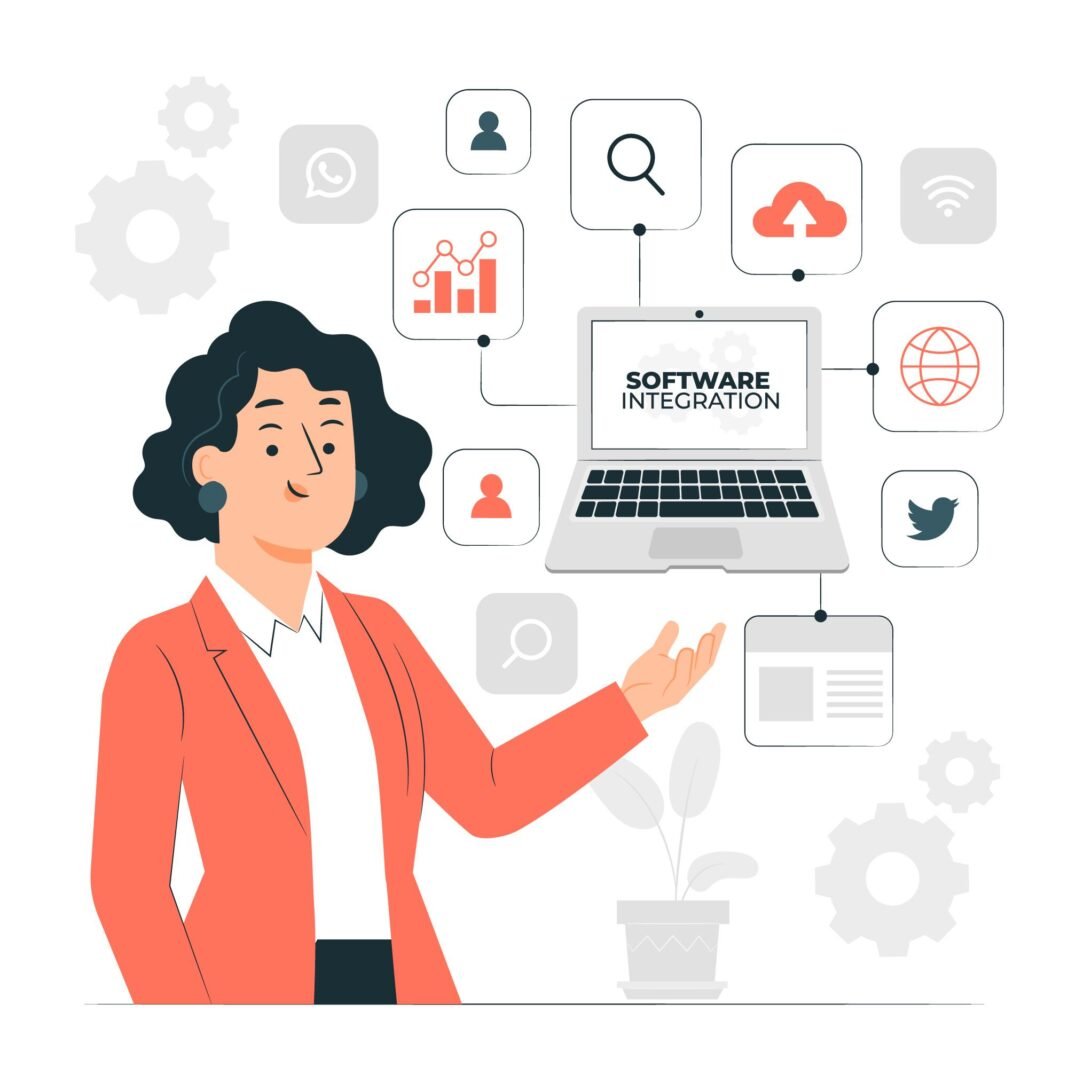In the rapidly evolving digital landscape, organizations must adapt to new technologies and integrate various systems to remain competitive. Integration Platform as a Service (iPaaS) offers a robust solution for modern enterprises looking to streamline their operations through data-driven integration. By enabling seamless connectivity between applications, data sources, and workflows, iPaaS empowers businesses to leverage their data more effectively and drive innovation.
The Role of iPaaS in Data-Driven Integration
Connecting Diverse Applications and Data Sources
One of the primary functions of iPaaS is to connect various applications, whether they are cloud-based or on-premises.
Unified Integration: iPaaS provides a centralized platform that simplifies the integration process, allowing you to connect multiple applications without the need for complex custom coding.
Pre-Built Connectors: Many iPaaS solutions come with pre-built connectors that facilitate rapid integration between popular applications, reducing deployment times significantly.
Enabling Real-Time Data Access and Synchronization
Access to real-time data is crucial for informed decision-making.
Instant Insights: With iPaaS, you can synchronize data across all connected systems in real time, ensuring that stakeholders have access to the most current information available.
Automated Updates: Automated synchronization eliminates delays caused by manual updates, allowing your organization to respond quickly to changing business conditions.
Supporting Cloud and On-Premises Integration
As businesses increasingly adopt hybrid environments, the ability to integrate both cloud-based and on-premises systems becomes essential.
Flexible Integration Options: iPaaS solutions can seamlessly connect applications across different environments, ensuring that your organization can leverage existing investments while embracing new technologies.
Key Benefits of iPaaS Services
Improved Operational Efficiency
Implementing iPaaS services can lead to significant improvements in operational efficiency.
- Streamlined Processes: By automating repetitive tasks and workflows, your team can focus on higher-value activities rather than getting bogged down by manual processes.
- Error Reduction: Automation minimizes human errors associated with manual data entry, leading to more accurate outcomes and improved compliance with regulations.
Enhanced Agility and Scalability
In today’s fast-paced business environment, agility is key to staying competitive.
- Rapid Deployment: With iPaaS, you can quickly deploy new integrations or modify existing ones as your business needs change, enabling you to adapt swiftly to market demands.
- Scalable Solutions: As your organization grows, iPaaS allows you to scale your integration capabilities without significant infrastructure investments or resource strain.
Cost-Effectiveness and Resource Optimization
iPaaS services can help organizations optimize their resources while reducing costs.
- Subscription-Based Pricing Models: Many iPaaS providers offer flexible pricing structures based on usage or number of integrations, making it easier for businesses to manage their budgets effectively.
- Reduced IT Overhead: By leveraging cloud-based solutions, organizations can minimize the need for extensive on-premises hardware and reduce maintenance costs associated with traditional integration methods.
How iPaaS Services Drive Business Innovation
Facilitating Automation of Workflows
Automation is a key driver of innovation in modern enterprises.
- Streamlined Operations: By automating workflows across various applications, you can enhance collaboration between departments and improve overall operational efficiency.
- Focus on Strategic Initiatives: With routine tasks automated, your team can concentrate on strategic initiatives that drive growth rather than getting bogged down by administrative duties.
Supporting Data Analytics and Insights
Data-driven decision-making is essential for success in today’s competitive landscape.
- Enhanced Analytics Capabilities: By integrating various data sources through iPaaS, you gain access to comprehensive analytics tools that provide valuable insights into business performance.
- Informed Decision-Making: Real-time access to integrated data allows decision-makers to make informed choices based on accurate information rather than relying on outdated or siloed data.
Enhancing Customer Experience Through Seamless Integration
Delivering exceptional customer experiences is vital for retaining clients in a competitive market.
- Personalized Interactions: By integrating customer data from various touchpoints, you can create personalized experiences that resonate with your audience and foster loyalty.
- Timely Responses: Real-time synchronization ensures that customer inquiries are addressed promptly, enhancing overall satisfaction with your services or products.
Challenges Addressed by iPaaS Solutions
iPaaS services help organizations tackle several common challenges:
Overcoming Data Silos
Data silos can hinder collaboration and decision-making within organizations:
Centralized Data Management: By integrating all relevant data into one platform, you eliminate silos that prevent collaboration between departments, fostering a culture of transparency and teamwork.
Simplifying Complex Integration Processes
Integrating multiple systems can be complex without the right tools:
User-Friendly Interfaces: Many iPaaS solutions feature intuitive interfaces that simplify the integration process, making it accessible even for non-technical users.
Ensuring Compliance and Security
Maintaining compliance with regulations is crucial for any organization handling sensitive data:
Built-In Compliance Features: Many iPaaS platforms come equipped with features designed specifically to help maintain compliance with industry regulations such as GDPR or HIPAA, ensuring that your organization meets legal requirements without constant manual oversight.
Implementing iPaaS Services in Your Organization
To successfully implement an iPaaS solution within your organization:
- Assess Your Needs: Identify specific integration challenges you face and determine how an iPaaS solution can address them.
- Choose the Right iPaaS Provider: Research different providers based on their offerings, scalability options, customer support quality, and pricing models.
- Plan Your Implementation Strategy: Develop a clear roadmap for deployment that includes timelines, resource allocation, and training requirements.
- Monitor Performance Continuously: After implementation, regularly assess the performance of your integration solution to identify areas for improvement or optimization.
Conclusion
In conclusion, adopting iPaaS services is essential for modern enterprises looking to enhance their operational efficiency through effective data-driven integration. By facilitating seamless connectivity between disparate systems, enabling real-time access to information, and supporting both cloud-based and on-premises environments, these solutions empower organizations to leverage their data more effectively while driving innovation.


